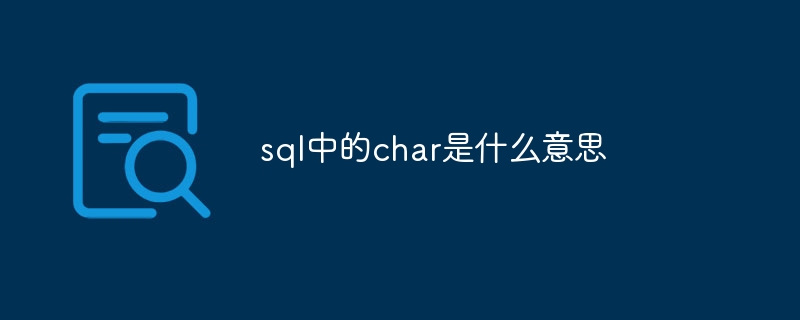What does char in sql mean?
- 下次还敢Original
- 2024-05-09 09:00:22671browse
CHAR is a character string type in SQL that has a fixed length and will be padded to the specified length regardless of the actual number of characters stored. It is used to store data of a specific length, ensuring alignment and preventing data inconsistencies.

The meaning of CHAR in SQL
CHAR is a data type in SQL, used to store fixed-length character string. It takes the specified number of characters as length, regardless of the actual number of characters stored.
Features:
- Fixed Length: CHAR columns always have a predefined length and do not change based on the length of the stored data .
- Space padding: Unused characters in the CHAR column will be padded with spaces.
- Storage space: CHAR columns take up more storage space than the actual number of characters because they must be padded to the specified length.
Uses:
CHAR data type is usually used in the following situations:
- Store data that requires a specific length, such as postal services code or phone number.
- Ensure data is aligned in the table for easy comparison and processing.
- Prevent data inconsistency because the field length is consistent.
Example:
The following example creates a CHAR column named "name" with a length of 20 characters:
<code class="sql">CREATE TABLE users ( name CHAR(20) NOT NULL );</code>
In In this case, the "name" column always remains 20 characters wide, regardless of the actual length of the name stored. If the name is less than 20 characters long, the remaining space will be padded with spaces.
The above is the detailed content of What does char in sql mean?. For more information, please follow other related articles on the PHP Chinese website!

